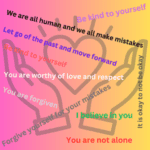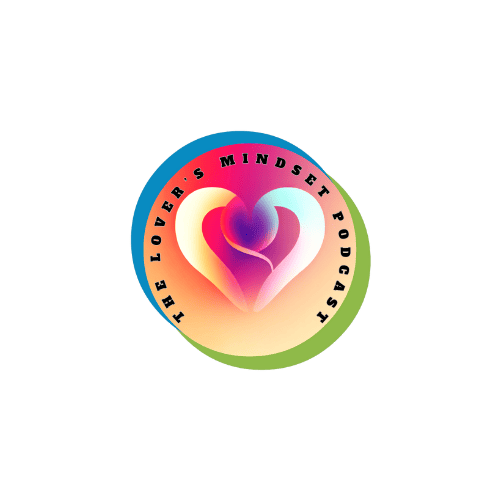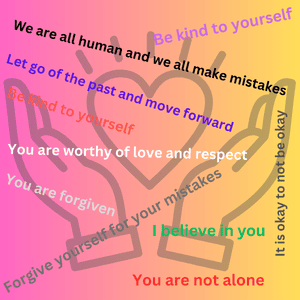
How To Develop Compassion and Forgiveness
Hello, beautiful souls, Leo Bastien here, your guide to the extraordinary journey of love. Welcome to another episode of “The Lover’s Mindset.” Today, we are discussing deep into the heart of something truly transformative—How to develop compassion and forgiveness. Get ready to explore the art of healing, understanding, and creating bonds that withstand the test of time.
Before we dive in, please subscribe, follow, and share this episode. Interact with me by commenting and sharing your stories and struggles with love. If you have any questions don’t hesitate to ask. Thank you. Now let us dive in.
The Power of Compassion: 3 Practical Examples
Compassion is the ability to understand and share the feelings of another person. It is a powerful force that can transform relationships and create a more connected and loving world.
Here are 3 practical examples of how to show compassion in relationships:
- Listen actively. This means paying full attention to what your partner is saying, both verbally and nonverbally. It also means asking clarifying questions and reflecting on what you’re hearing to ensure that you understand.
- Be empathetic. Try to see the world from your partner’s perspective and understand their feelings. This may involve putting yourself in their shoes and imagining how you would feel if you were in their situation.
- Offer support. When your partner is going through a difficult time, let them know that you’re there for them. Offer practical help, emotional support, or simply a listening ear.
Here are some specific examples of how to implement these strategies:
- Listen actively: When your partner is talking to you, put away your phone, turn off the TV, and make eye contact. Give them your full attention and ask clarifying questions.
- Be empathetic: When your partner is feeling upset, try to see the situation from their perspective and understand their feelings. For example, if they’re feeling stressed about work, you could say something like, “I can understand why you’re feeling stressed. That sounds like a lot to deal with.”
- Offer support: If your partner is going through a difficult time, offer them your support. This could involve cooking them dinner, running errands for them, or simply giving them a hug.
Showing compassion is one of the best ways to strengthen your relationships and create a more loving and supportive world. By practicing the strategies above, you can start to show compassion to your partner in more meaningful ways.
The Dance of Forgiveness: Practical Examples
Forgiveness is like a dance, a journey through the layers of our emotions as we heal from hurt, betrayal, and the untruths in our minds. It’s not always easy, but it’s a gift we give to ourselves and others, fostering a love that’s resilient and enduring.
Here are some practical examples of how to navigate the path of forgiveness:
Acknowledge your emotions. It’s important to take time for self-reflection and express your feelings honestly. This may involve journaling, talking to a trusted friend or therapist, or even writing a letter to the person you’re forgiving (that you don’t have to send).
Encourage open communication. Once you’ve begun to process your own emotions, you can start to communicate openly with the person you’re forgiving. Share your perspective and listen to theirs. This can help to create a safe space for both of you to heal and move forward.
Set Boundaries. Forgiveness doesn’t mean forgetting what happened or allowing the person to hurt you again. It’s important to set boundaries and protect yourself from further harm. This may involve limiting contact, ending the relationship, or seeking professional help.
Practice self-compassion. Forgiveness is a journey, not a destination. Be patient with yourself and allow yourself time to heal. Remember that you are worthy of love and respect, even when you’ve been hurt.
Here are some specific examples of how to implement these strategies:
Acknowledge your emotions: If you’re feeling angry, write down a list of all the things that make you angry. If you’re feeling sad, allow yourself to cry. If you’re feeling scared, talk to a trusted friend or therapist.
Encourage open communication: Schedule a time to meet with the person you’re forgiving in a private and safe setting. Share your perspective and listen to theirs without judgment. If you’re struggling to communicate effectively, consider using a mediator or therapist.
Set boundaries: If the person who hurt you is still in your life, it may be important to set boundaries to protect yourself. This may involve limiting contact, avoiding certain topics, or ending the relationship altogether.
Practice self-compassion: Talk to yourself the way you would talk to a friend who is going through a difficult time. Remind yourself that you are worthy of love and respect, even when you’ve been hurt.
Forgiveness is not always easy, but it’s a powerful tool for healing and transformation. By practicing the strategies above, you can start to move forward from hurt and betrayal and create a life filled with love and joy.
Navigating Love’s Challenges in Your Relationships
Love isn’t always a smooth sail. It’s a journey with its twists and turns. We just have to learn how to navigate the challenges with grace and compassion. Because, let’s face it, the true test of our love isn’t how we thrive in moments of joy but how we act and react when we are being tested by our miscreations, problems, and projections.
Love’s journey can be a thrilling adventure, but it’s not always smooth sailing. In the journey of love, there will be challenges that will test the strength of our connections. Compassion becomes the compass guiding us through the twists and turns of love. It’s a celebration of resilience and the triumph of love in the face of adversity.
When navigating challenges, approach them as a team. Collaborate on finding solutions rather than placing blame. Remember, it’s not about avoiding difficulties but facing them together, reinforcing the strength of your connection.
Self-Compassion and Self-Forgiveness
Ah, but here’s a key ingredient often overlooked—self-compassion and self-forgiveness. How can we cultivate love externally if we’re not gentle with ourselves? We must extend the same compassion and forgiveness to ourselves that we offer to others, creating a foundation for a love that is authentic and unconditional.
Amidst the dance of love, let’s not forget the dance with ourselves. Self-compassion and self-forgiveness—are crucial steps in cultivating a love that’s authentic and enduring. Together, let’s begin by being kind to ourselves, and understanding that true love begins within. Prepare to embark on a journey of self-discovery and embrace the beauty of becoming the right partner for ourselves.
Cultivate self-compassion through positive affirmations and self-care practices, you get to treat yourself with the same kindness you extend to others. Embrace self-forgiveness by recognizing that growth involves learning from mistakes and moving forward with newfound wisdom.
Building Trust Through Compassion
Trust—the bedrock of lasting relationships. We’ll uncover how compassion plays a pivotal role in rebuilding trust after it’s been tested. Together, we’ll explore practical steps to foster a trusting environment where love can bloom and thrive.
There is a profound connection between compassion and trust. When trust is tested in any relationship, compassion becomes the bridge to rebuilding and strengthening the foundations of love. Create an environment where love not only survives but thrives.
To build trust, be consistent in your actions and transparent in your communication. Practice reliability and keep your promises. Show compassion when your partner is vulnerable, creating an atmosphere where trust can naturally thrive.
Amplifying Love with a Forgiveness Practice
There is a transformative power in a forgiveness practice. From simple rituals to mindful exercises, you can amplify love through intentional forgiveness. Embracing the practice of forgiveness, not only deepens our connection with others but also cultivates a more compassionate and forgiving mindset in our own lives.
I advise you to incorporate forgiveness into your daily life. Establish a forgiveness ritual—whether it’s a nightly reflection or a weekly conversation. Use this time to express gratitude, forgive any lingering grievances, and reinforce your commitment to a loving and forgiving relationship.
CONCLUSION
As we wrap up today’s episode on cultivating compassion and forgiveness in love, remember, that it’s not just about finding the right partner but becoming the right partner. Thank you for joining me on this journey. Until next time, keep spreading love, embracing compassion, and forging a mindset that elevates every aspect of your relationships. This is Leo Bastien, signing off from “The Lover’s Mindset.”
As we conclude, remember that these practices aren’t one-size-fits-all. Tailor them to fit your unique relationship. Thank you for joining me on “The Lover’s Mindset.” Until next time, implement these practical tips, keep spreading love, and continue nurturing the beautiful garden of your relationships. Love, joy, peace, and happiness to you all. Namaste.


Leave a Reply